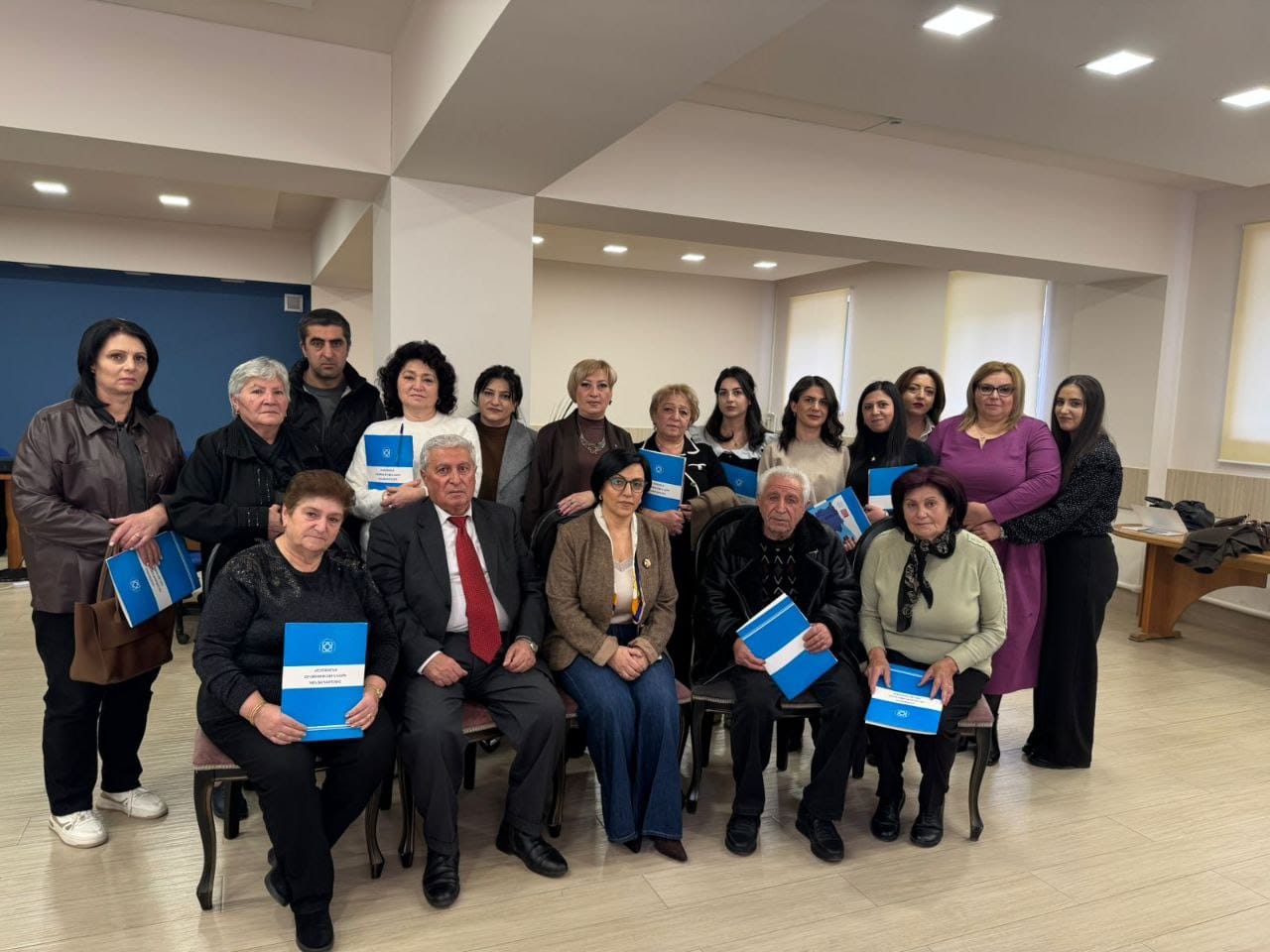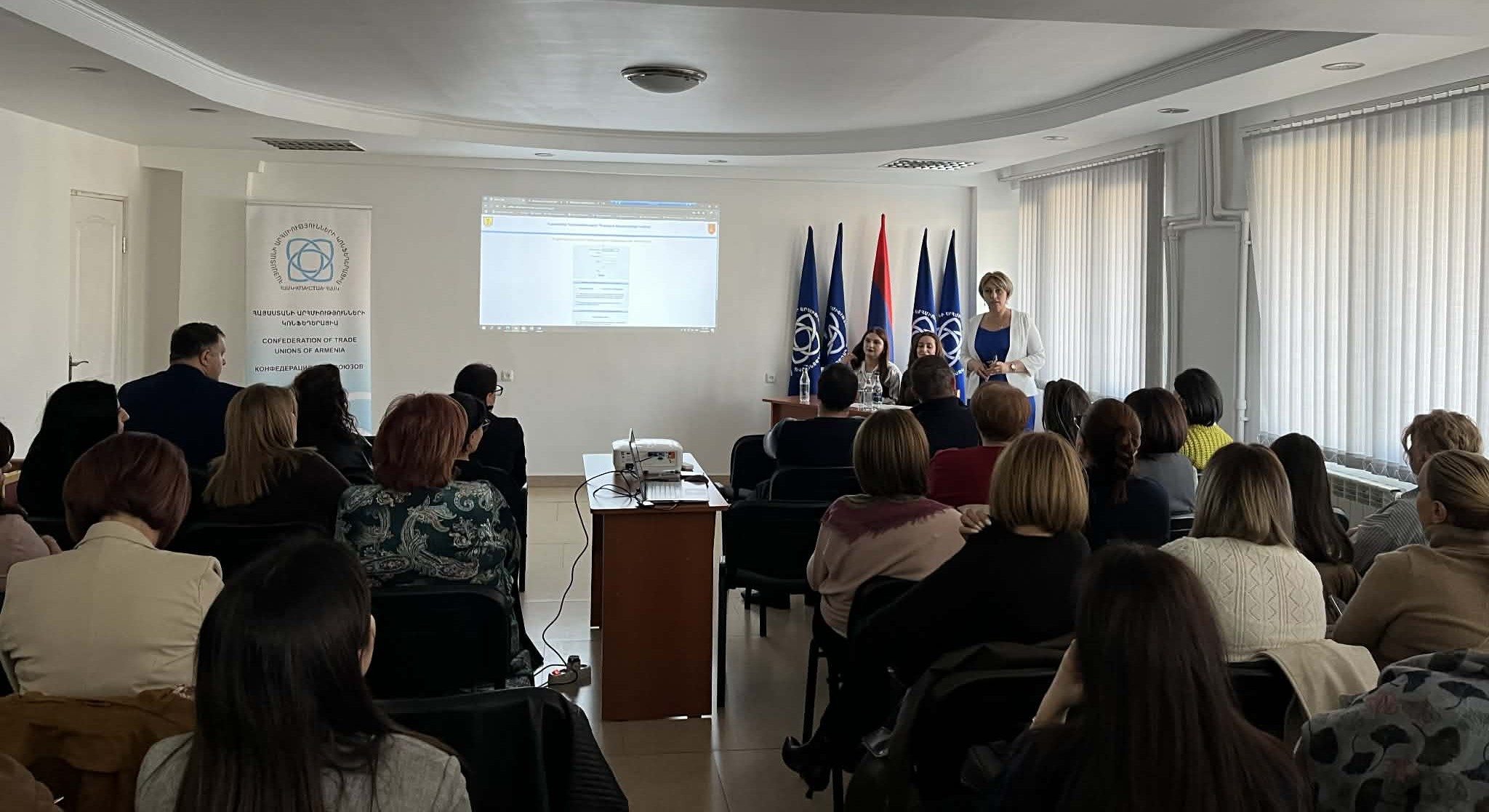
The International Labour Organization (ILO) hosted the Global forum for a human-centered recovery from 22-24 February. The virtual Forum aimed to increase the level and coherence of the international response to the profound and unequal impact of the COVID-19 crisis on people globally.
What are the results of the Forum, what are the achievements and future expectations?
It was three days of intensive discussions. The Forum was quite unique and I think the important thing about the Forum is that it brought together heads of government, heads of states and heads of international organizations. So we had not just the International Labour Organization, but the head of the International Monetary Fund, the head of the World Trade Organization, United Nations, World Health Organization, and many others together with representatives of workers and employers, and this is what we wanted the Forum to do.
COVID has not just been a health emergency, it's created an economic and social crisis, and it is our conviction, that to get out of this crisis we need to bring together the different dimensions of policy, so labour policy, trade policy, financial policy, as well as the general health policy. We need to bring them together in a more coherent way. It makes no sense to deal with these separate challenges in isolation. And we need also to operate through dialogue between governments, workers and employers. So that was the logic of our Forum.
I think the discussions were good, we covered a lot of ground in depth. The intention was not to adopt recommendations or conclusions but rather for this to inform our thinking. I will be reporting on this Forum to the ILO’s governing body. And we think it has already set a platform that we put it like that, for future cooperation, intensified cooperation across the system. And I think it has met our expectations of it.
So in the future, you expect to address more comprehensively the crisis like COVID-19 and its consequences in different spheres.
Absolutely. I have to be clear, at the ILO we are already working with our friends in the financial institutions, in the health organization. But we need to see an intensification of that cooperation. And sometimes I think this cooperation is just episodic, it is now and again, here and there. We want to make it permanent. We want to make it systematic, that at least is my ambition, I will be working in that direction. And from my point of view, the Forum is not the finishing point, it is the starting point for this agenda.
The COVID-19 crisis as in many other countries, also in Armenia, has exposed significant gaps in our social protection system as a whole, including the lack of a nationwide strategy, lack of comprehensive social protection floors. What would be, in the ILO opinion, the necessary steps to build a comprehensive social protection system for all, given the size and status of the Armenian economy?
Firstly, I agree with the beginning of your question. It is absolutely true. I agree that this pandemic has shown the extent of the inadequacies of social protection in the world. Our global figures show that the majority of workers in the world - 53%, in fact, have no social protection. So when a problem comes, a shock arrives like a pandemic these people are really in big difficulty. We believe that one of the lessons of this pandemic is that we need to take seriously the need for universal social protection. Now, that might sound like a utopia, something impossible, but the work that we have done shows that we simply have to invest more from national resources and international resources to promote social protection. And this is a global challenge accepted by everybody. The Secretary-General of the United Nations as himself in September launched what we call a global accelerator for jobs and social protection. It is a global vehicle to pursue this agenda.
Now, if you look at Armenia, my information is that the level of coverage of social protection is better than the world average, 54% of people have at least one type of social protection, not necessarily comprehensive. But that is still a low figure. And by the way, it is very, very much less than the average for Eastern Europe and the Central Asian region. So Armenia has to do better, I'm encouraged that the government is developing a labour and social protection program it is taking on this challenge, and we are working with Armenia to do this. But here again, I have to emphasize that in any country, and Armenia is not an exemption, you have to invest resources in social protection. And, again, my figures show that Armenia has a very low rate of investment in social protection 6.8% of its GDP, and again, by comparison with other countries in your sub-region. This is very low. So, this is a matter of priorities.
During last years there was not only COVID for us but also the war that we faced in 2020. So lots of refugees from Artsakh/Nagorno Karabakh, and also the unstable situation in Armenia’s borders, the dangers for the border population showed many other gaps and the necessity of comprehensive social protection. What can be done in order to ensure Social Protection Floor in Armenia, also considering the post-war situation?
The first thing I want to say to you is that of course, I am aware of the post-conflict situation in your country, the problems that have arisen from the conflict that we saw in Nagorno Karabakh. And by the way, at a moment, when we are observing developments in other countries right now, not so far away from yours, we understand that it is extraordinarily difficult to advance in economic and social areas if there's a lack of peace. I want to express my understanding of that. Now, when you have a situation of fragility like this, and you've referred to it, this of course makes the challenges more complex. But not because the problems are big, does it mean that we should not try to solve them? I think that in respect of social protection, which is mainly what you're asking me about, you have to start at the beginning. And the beginning means doing everything possible to ensure basic income security to the people affected, you need to cover the necessities in very straightforward ways. And that often goes together with the challenges of basic things like housing, income, job creation. One of the things you need to do is to build local capacity to assess people's needs to adapt programs to the specific circumstances and needs of refugees.
So I'm not saying that these are easy challenges, but I think by a very focused approach, which really involves an understanding of the realities of complex situations, we can move forward.
I wish we could talk also talk about emigrants but not only in the Covid situation but also during the wars, as we have now a war going on in the world. As you might know, Armenia has a quite high emigration rate. So what should be done for migrants’ social protection in times of pandemics and wars?
You point to something extremely important. I have always believed that migration is a positive part of the world of work, so long as it is undertaken as an option and not an obligation. And so long as it is undertaken in condition where the rights of the people concerned are respected. It is always preferable that decent work opportunities are available in people's home countries so they do not have an obligation to emigrate to improve their lives. That is the first thing.
Now the second point is, you know, there is one basic principle that we should be applying to situations of emigration. And that is the principle of equal treatment. Receiving countries should treat a migrant worker on the labour market in the same conditions as a local worker, it is an easy principle to understand, but also much more difficult principle to make a reality of. One of the problems that we have to solve is where migration takes place on an irregular basis. That is to say, without the proper processes and documentation, without the registration of the workers concerned: In this case, the dangers of abuse and exploitation are very much greater. Unfortunately, particularly in situations where people are trying to get away from conflicts or repression, migration often takes place on an irregular basis. So we have to develop legal pathways for migration and then regulate migration accordingly.
Now, I have to be honest with you, I think that the performance of the international community in respect to migration has not been good. I regret but I observe that a great deal of stigma and negativity has grown up in the world, in respect of migrant workers, they are subjected to very negative social behaviour in many countries. It's a very bad thing. We have to I think of a priority to make the positive case for migration, not just for the workers, but for the receiving countries, and make it understood that we have a strong responsibility to protect the rights of migrant populations. Today, far too frequently this is not the case and I regret it.
The International Labour Organization is working with the International organization on migration to make the reality of a very important document that was adopted by the UN a few years ago, the global path on safe and orderly and regular migration. We have the plan, we have the blueprint, we now have to act to make it a reality.
As you have fairly mentioned, in many cases people are leaving their countries because of unemployment. This is also a big issue in Armenia. The unemployment rate in Armenia is 15%. The highest percentage of the unemployed are middle-aged people. As the official statistics mentions, 95.0% of the unemployed are uncompetitive in the labour market. Are there any tools that ILO could suggest for them and what is the role of the government here?
You point to a really important challenge, not just in Armenia, but in many countries, which is how to rescale and upskill people throughout their working lives. You know, today, I think the reality of the world of work is that however well-educated you get at the beginning of your adult life, it will not be enough to equip you for the entirety of working life. In a world of work, which is changing so quickly it is just not reasonable. And the key concept is that we have to make a reality of this rather abstract, I admit, the concept of lifelong learning. We have to make the possibility for working people to acquire new skills, different skills, not just at the beginning of their working life, but at all different points of working life. You know, I often hear it said that a worker who is 40 or 50 years old cannot learn, they cannot change, they cannot adapt. I don't agree. The fact of the matter is that we do not offer these people the facilities, or the possibilities, or the finance to rescale into renewing their learning capacities. So it is a priority for ILO to make lifelong learning for all a reality. we have to work out finance it, we have to work out the delivery systems that can make it a reality. And we also have to work out who is responsible? Is it the worker themselves? Is it the state? Is it the enterprise? And my answer to that is it's all of that. But we have to work out the division of responsibilities.
There are many violations of the AR’s Labour Code by employers. Just looking at a few job announcements on online job search websites could be enough to make sure in it. The most obvious one is that the normal working hours, defined by the RA Labour Code, are violated. We do not really see any response from the authorities to these issues. It is not that job seekers can reject such offers, as this phenomenon is widespread. Are there any tools for restraining employers and how can we overcome such a pervasive situation?
The situation, as you described, is clearly a very worrying and unsatisfactory. The first thing I want to say is that it makes no sense to have a Labour Code, however good it is, it is no use if the Labour Code is not observed in practice. That means that the laws, the regulations need to be accompanied by enforcement, and by Labour inspection, which means it is not possible for employers to act with impunity, to exploit people, that's the right word, in contravention of national legislation. That is the basic point that I want to make.
In the absence of inspection, and enforcement, in a situation where people are really anxious to find a job, because there may not be that many good opportunities for work, people are highly vulnerable to unsatisfactory working conditions. So I have to say this is not an unfamiliar story around the world, we get these situations. But my answer to your question is very clear, the Labour Code the legislation has to be accompanied by enforcement mechanisms where somebody does something wrong, where an employer does something which is against the law, they should be punished for it, and the sanctions should be sufficient to dissuade them from behaving irresponsibly. And of course, enforcement also means inspection. I have an example I could offer to you of the country Georgia. At one point Georgia decided to abolish its labour inspectors just to get rid of it. Because as they move towards a market economy, they thought this was the best way to make the labour market work most efficient and to get people into work. The experience was very bad. And eventually, I'm pleased to see Georgia reversed that decision.
So my message is, in the light of that experience, and everything else I've said to you, there are no shortcuts here. And there is simply no logic behind suggesting that leaving workers unprotected is the best way to increase employment, that is the wrong road to take.
I hope this would be an alarm for our government. So let’s move to another very interesting topic about the occupations that people need to choose today. With general observations, today in Armenia is a tendency among school graduates of choosing occupations in the IT field. Also, many IT companies are looking for specialists and are complaining about their lack. How would you rate this? Are IT professionals the most in-demand now?
I think that it is true that in the information communications field, in the technology field, there is a very strong demand for skills and for workers. So I think that your compatriots, particularly young ones, who are looking to place themselves on the labour markets in an advantageous way, they are looking in the right place. This is my own experience, at least. But let's not be too simplistic. We know as well, that employers are not only looking for the hard skills, technological competence, programming competence, they are also looking for softer skills, skills of personal communication, collaborative work skills, the ability to take decisions on an informed basis, etc. I hear this all the time from employers. This is also very important, sometimes it is neglected. I think also, we can say it is not easy to teach in a formal way. It comes from experience, doesn't it? We learn over our time, how to interact with people. I mean, I understand and agree with the particular focus on it. But you know, there is a lot more to it than that, let me say that.
What other professions would you recommend for the youth and which are the occupations of the future?
There are two areas where we know that employment is going to grow in the future. One is in the health and care sectors. We see a need to professionalize and upgrade the care economy to make care professions a really attractive, professional option.
Secondly, we have to take seriously what is already happening and what must happen, which is a transition to carbon neutrality in the world of work. We all agree now that climate change is a result of human activity. While most of that human activity is work, or work-related. So solving climate change means restructuring the world of work. We have to move toward a green economy and towards green jobs. Now those green jobs can look very different, depending on the sector concerned, depending on the nature of the activity. But this too is an area in which there are going to be major future employment opportunities. It's not going to be a choice; it's going to be an obligation.

















